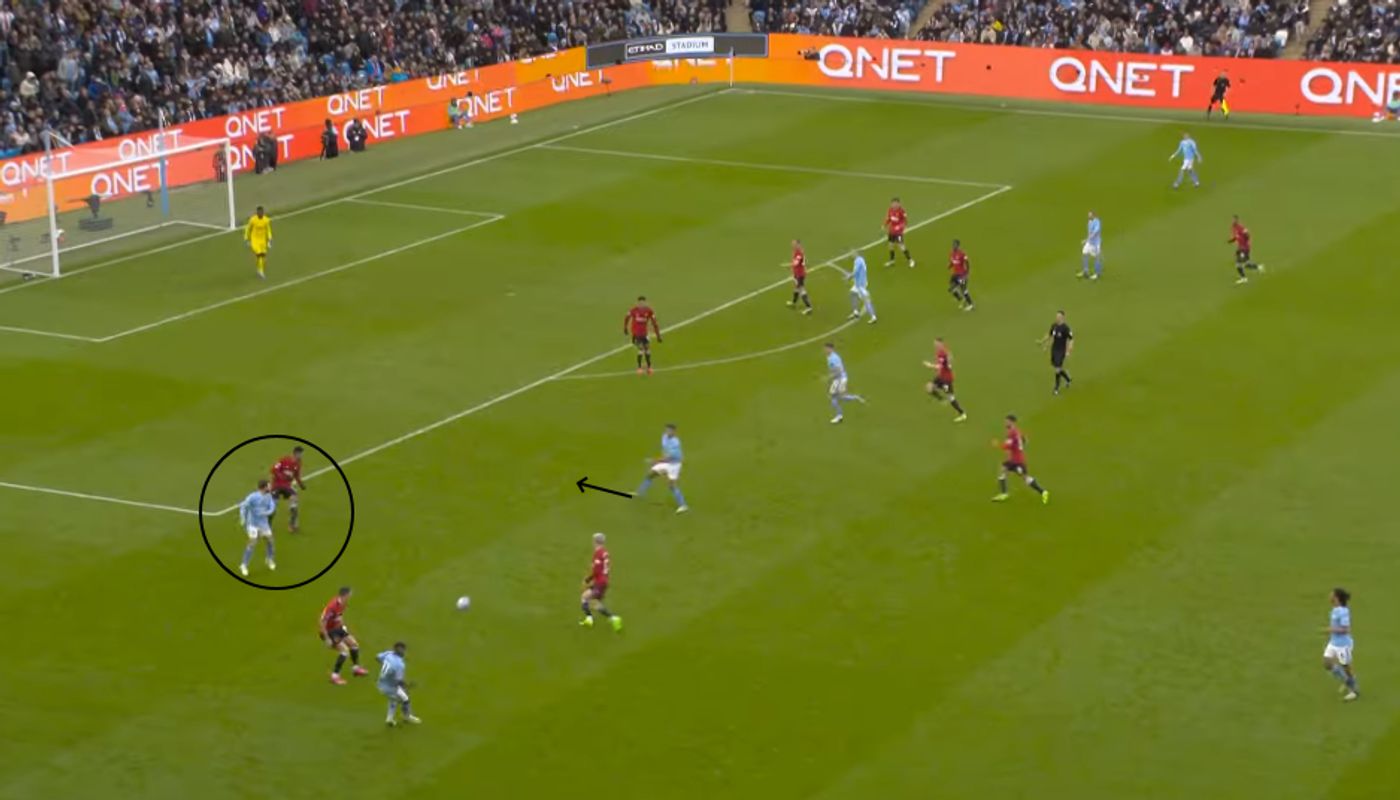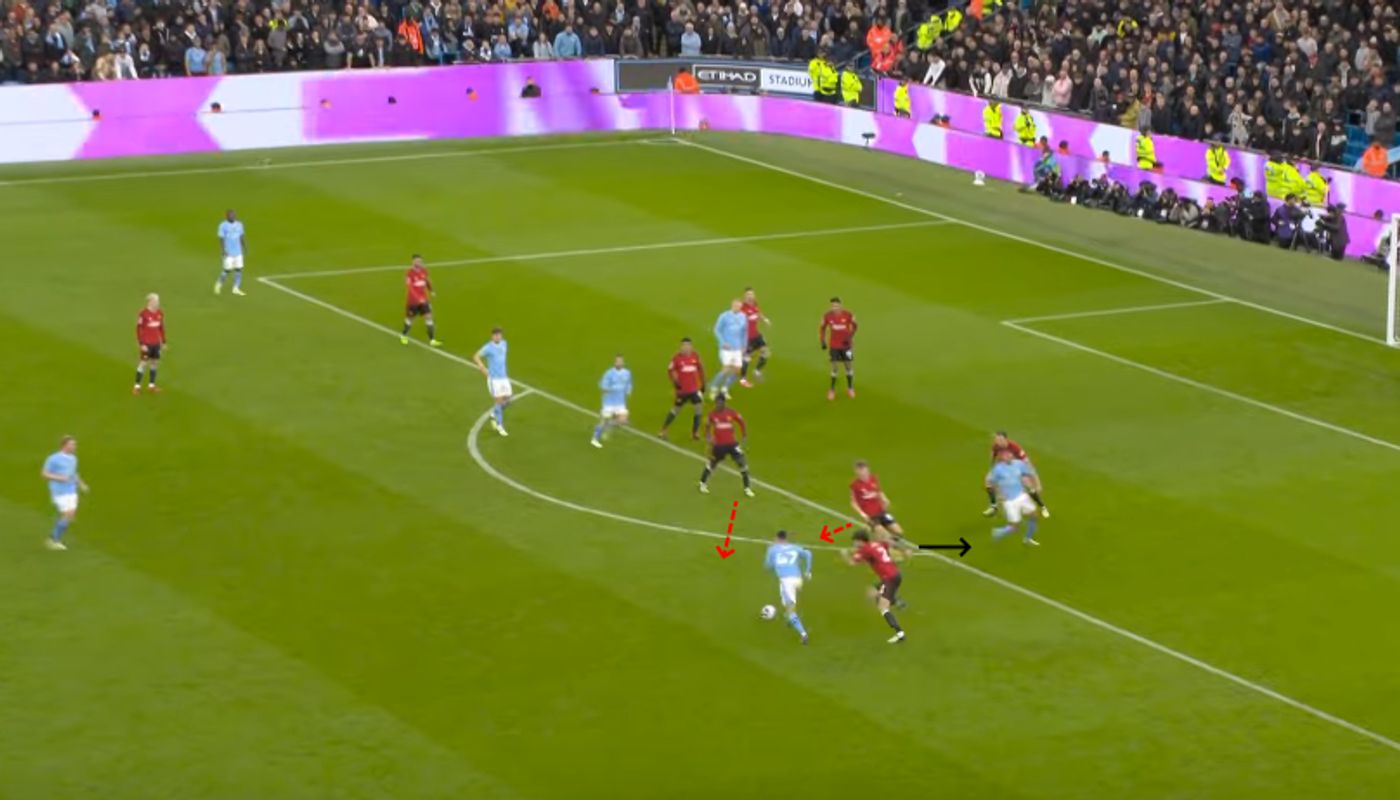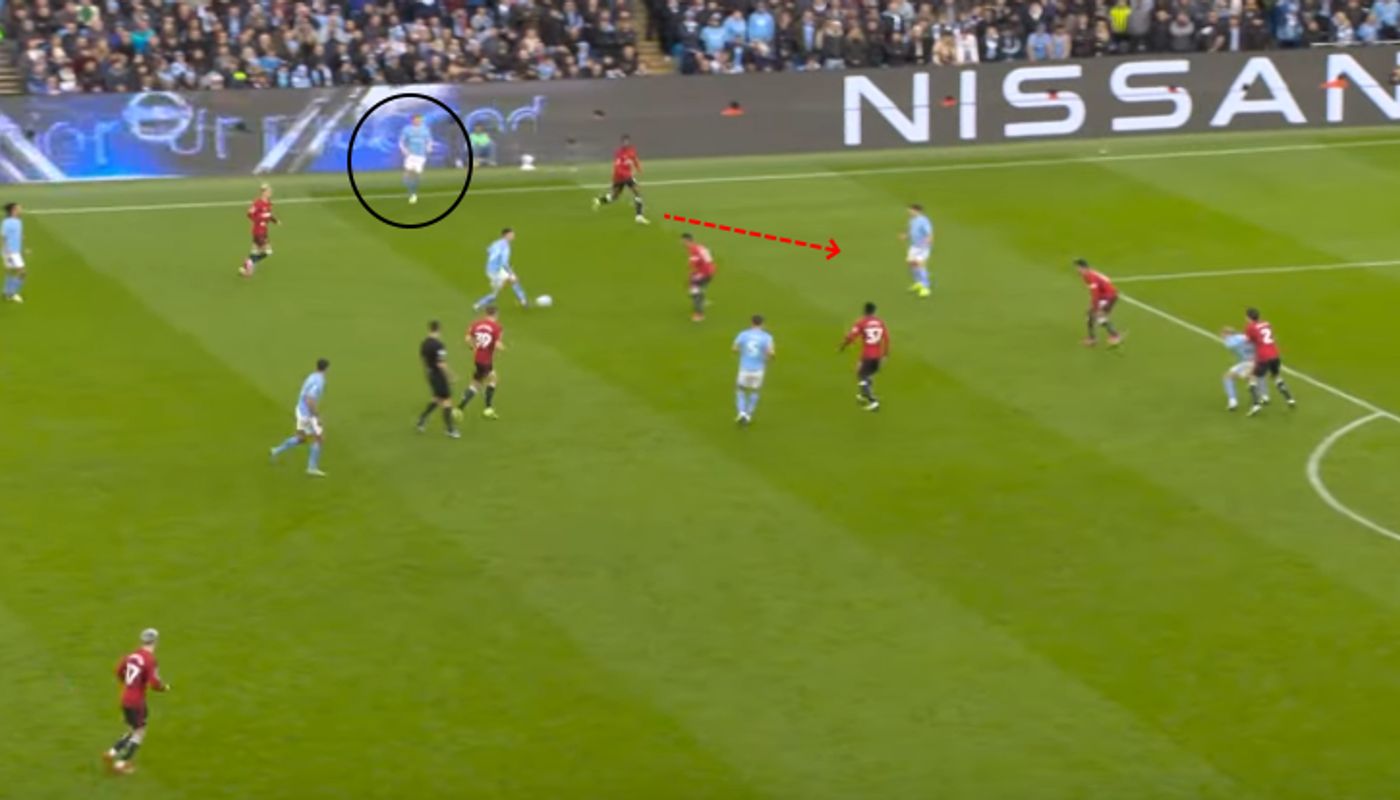Alex Keble analyses Manchester City's 3-1 win over Manchester United that moved the champions back to a point behind leaders Liverpool.
TV Info - Broadcasters
To be 1-0 up at the Etihad Stadium with almost an hour on the clock is no mean feat, and yet Marcus Rashford’s screamer had flattered a below-par Man Utd who, by the final whistle, could have no complaints.
Even at the break, with United leading, the outcome felt inevitable.
At half-time Man City had accrued an Expected Goals (xG) total of 2.73 to United’s 0.22, the hosts taking 18 shots, the joint-most Man Utd have ever faced in the first half of a Premier League game since the data was first recorded in 2003/04.
It was a freak scoreline, courtesy of a remarkable goal from Rashford and an even more remarkable miss from Erling Haaland.
An hour later, everyone was in agreement: City were by far the better team. They held 74 per cent possession and took 27 shots. United took three. Only once since such data was recorded have the Red Devils had fewer shots in a Premier League game.
But of course Man City’s territorial dominance and Man Utd’s hunched position on the edge of their own penalty area was a tactical choice from Erik ten Hag. He will no doubt argue that, for 45 minutes, his plan succeeded.
Here’s what Man Utd did to try to stop Man City – and why it didn’t work.
Casemiro & Mainoo pulled around in striker-less 4-4-2
Ten Hag went for an extraordinarily defensive tactical set-up for this contest, playing a 4-4-2 in which midfielders Bruno Fernandes and Scott McTominay effectively operated as extra central midfielders.
At times it was more of a 4-6-0, although the specific man-marking instructions given to Casemiro and Kobbie Mainoo meant we often saw a 6-4-0 as United squeezed into a tiny space near their own penalty area.
In theory, this made sense. Man Utd have had serious problems with decompression between the lines this season, as we highlighted earlier this week, and therefore they needed to sit off Man City to avoid conceding lots of goals.
What’s more, the threat of Kevin De Bruyne, Phil Foden, and Bernardo Silva made it essential to block the centre.
The most touches Phil Foden has had in a Premier League match 👏
— Premier League (@premierleague) March 3, 2024
📊 @Oracle pic.twitter.com/BByNgGr5gf
But the set-up here was too extreme, particularly in how the midfielders were instructed to move about.
Throughout the match Casemiro and Mainoo dropped into the back four to follow any Man City playmaker moving into the forward line, knowing Fernandes and McTominay would cover them.
It pulled United into some rather strange positions, leading to many chances and the first Man City goal.
Here, Casemiro’s (circled in black) tracking of Silva left Rodri free to receive the pass and play in Foden, who squared for that unbelievable Haaland miss.

For City’s first goal McTominay was the follower, matching Rodri’s run to open up a pocket of space for Foden, who, benefiting from Man Utd being too deep, scored the equaliser.

Guardiola targets Man Utd’s right side late on
The winner felt inevitable, but that doesn’t mean Pep Guardiola simply waited for it to happen.
In the 69th minute Willy Kambwala was brought on for Jonny Evans, forcing United into a significant reshuffle at the back as Diogo Dalot moved to left-back and Victor Lindelof into the middle.
Six minutes later, Antony came on for Rashford, meaning United now had Kambwala and Antony defending the right side.
Guardiola smelt blood.
He instantly moved both Foden and De Bruyne out to the left wing, and from here City’s two playmakers took advantage of Antony’s inability to track successfully and Kambwala’s inexperience.
The 19-year-old did nothing wrong, but without adequate support from Antony, Kambwala inevitably couldn’t handle De Bruyne and Foden. Nobody in that position could have.
For Man City’s second goal, below, Foden and substitute Julian Alvarez found space for a one-two because Kambwala had been drawn out to De Bruyne (circled in black).
Put simply, there were too many high-quality players all leaning out to that side for Man Utd to cope.

In fact, you could say that was true for 90 minutes in all areas: too many high-quality players for the Man Utd team to cope.
This was an emphatically one-sided Manchester derby, more so than the 3-1 scoreline would suggest.
As one team swarmed and the other shrank, here was a stark reminder of the gap between the two teams.











